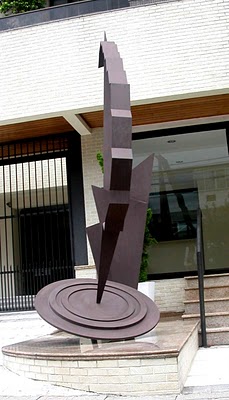
Vis e Ramin
"And, elsewhere, sudden arrows entered eyes
Like sleep that takes a warrior by surprise;
Like love, spears pierced through hearts, and like good sense
Axes split open heads and arguments.
It seemed that swords found out exactly where
God placed the soul with such abundant care,
And where men's flesh was opened by the blade
The soul fled through the gaping wound it made"
It was the first major Persian romance, written between 1050 and 1055 in rhyming couplets. This remarkable work has now been superbly translated into heroic couplets (the closest metrical equivalent of the Persian) by the poet and scholar Dick Davis. Vis and Ramin had immense influence on later Persian poetry and is very probably also the source for the tale of Tristan and Isolde, which first appeared in Europe about a century later. The plot, complex yet powerfully dramatic, revolves around royal marital customs unfamiliar to us today. Shahru, the married queen of Mah, refuses an offer of marriage from King Mobad of Marv but promises that if she bears a daughter she will give the child to him as a bride. She duly bears a daughter, Vis, who is brought up by a nurse in the company of Mobad’s younger brother Ramin. By the time Vis reaches the age of marriage, Shahru has forgotten her promise and instead weds her daughter to Vis’s older brother, Viru. The next day Mobads brother Zard arrives to demand the bride, and fighting breaks out, during which Vis’s father is killed. Mobad then bribes to hand Vis over to him. Mobad’s brother Ramin escorts Vis to her new husband and falls in love with her on the way. Vis has no love for and turns to her old nurse for help.... Told in language that is lush, sensual and highly inventive, Vis and Ramin is a masterpiece of psychological perceptiveness and characterization: Shahru is worldly and venal, the nurse resourceful and amoral (she will immediately remind Western readers of the nurse in Shakespeare’s Romeo and Juliet), Vis high-spirited and determined, Ramin impetuous and volatile. And the hopeless psychological situation of Vis’s husband, Mobad, flickers wearily from patience to self-assertion to fury and back again. The origins of Vis and Ramin, are obscure. The story dates from the time of the Parthians (who ruled Persia from the third century bce to the third century ce), and certainly existed in oral and perhaps written form before the eleventh century Persian poet Fakhraddin Gorgani composed the version
You’ve never truly slept with any man.
You’ve had no joy of men, you’ve never known
A man whom you could really call your own . . .
What use is beauty if it doesn’t bless
Your life with pleasure and love’s happiness?
You’re innocent, you’re in the dark about it,
You don’t know how forlorn life is without it.
Women were made for men, dear Vis, and you
Are not exempt, whatever you might do.
And to make quite sure that Vis knows what she is talking about, the nurse goes on to add:
God made us so that nothing’s lovelier than
What we as women feel when with a man,
And you don’t know how vehemently sweet
The pleasure is when men and women meet;
If you make love just once,
I know that then
You won’t hold back from doing so again.
This is a very hothouse world, and if the opportunities for pleasure are numerous and varied so are the opportunities for disgrace. Associated with the currency of one’s good name is the fairly frequent invocation of chivalry, especially by Ramin, as an ideal of behavior. An aspect of the poem that is perhaps startling at first, given the emphasis on courtly protocol, chivalry, and correct behavior, but which has clear parallels in Western medieval narratives that deal with the same kind of world, is the validation of adultery. The nurse’s admonitions to Vis, once her charge has realized she is married to someone for whom she feels no affection, are given with cynical insouciance:
The well-born women of the world delight
In marrying a courtier or a knight,
And some, who have a husband, also see
A special friend who’s sworn to secrecy;
She loves her husband, she embraces him,
And then her happy friend replaces him.
"And, elsewhere, sudden arrows entered eyes
Like sleep that takes a warrior by surprise;
Like love, spears pierced through hearts, and like good sense
Axes split open heads and arguments.
It seemed that swords found out exactly where
God placed the soul with such abundant care,
And where men's flesh was opened by the blade
The soul fled through the gaping wound it made"
It was the first major Persian romance, written between 1050 and 1055 in rhyming couplets. This remarkable work has now been superbly translated into heroic couplets (the closest metrical equivalent of the Persian) by the poet and scholar Dick Davis. Vis and Ramin had immense influence on later Persian poetry and is very probably also the source for the tale of Tristan and Isolde, which first appeared in Europe about a century later. The plot, complex yet powerfully dramatic, revolves around royal marital customs unfamiliar to us today. Shahru, the married queen of Mah, refuses an offer of marriage from King Mobad of Marv but promises that if she bears a daughter she will give the child to him as a bride. She duly bears a daughter, Vis, who is brought up by a nurse in the company of Mobad’s younger brother Ramin. By the time Vis reaches the age of marriage, Shahru has forgotten her promise and instead weds her daughter to Vis’s older brother, Viru. The next day Mobads brother Zard arrives to demand the bride, and fighting breaks out, during which Vis’s father is killed. Mobad then bribes to hand Vis over to him. Mobad’s brother Ramin escorts Vis to her new husband and falls in love with her on the way. Vis has no love for and turns to her old nurse for help.... Told in language that is lush, sensual and highly inventive, Vis and Ramin is a masterpiece of psychological perceptiveness and characterization: Shahru is worldly and venal, the nurse resourceful and amoral (she will immediately remind Western readers of the nurse in Shakespeare’s Romeo and Juliet), Vis high-spirited and determined, Ramin impetuous and volatile. And the hopeless psychological situation of Vis’s husband, Mobad, flickers wearily from patience to self-assertion to fury and back again. The origins of Vis and Ramin, are obscure. The story dates from the time of the Parthians (who ruled Persia from the third century bce to the third century ce), and certainly existed in oral and perhaps written form before the eleventh century Persian poet Fakhraddin Gorgani composed the version
You’ve never truly slept with any man.
You’ve had no joy of men, you’ve never known
A man whom you could really call your own . . .
What use is beauty if it doesn’t bless
Your life with pleasure and love’s happiness?
You’re innocent, you’re in the dark about it,
You don’t know how forlorn life is without it.
Women were made for men, dear Vis, and you
Are not exempt, whatever you might do.
And to make quite sure that Vis knows what she is talking about, the nurse goes on to add:
God made us so that nothing’s lovelier than
What we as women feel when with a man,
And you don’t know how vehemently sweet
The pleasure is when men and women meet;
If you make love just once,
I know that then
You won’t hold back from doing so again.
This is a very hothouse world, and if the opportunities for pleasure are numerous and varied so are the opportunities for disgrace. Associated with the currency of one’s good name is the fairly frequent invocation of chivalry, especially by Ramin, as an ideal of behavior. An aspect of the poem that is perhaps startling at first, given the emphasis on courtly protocol, chivalry, and correct behavior, but which has clear parallels in Western medieval narratives that deal with the same kind of world, is the validation of adultery. The nurse’s admonitions to Vis, once her charge has realized she is married to someone for whom she feels no affection, are given with cynical insouciance:
The well-born women of the world delight
In marrying a courtier or a knight,
And some, who have a husband, also see
A special friend who’s sworn to secrecy;
She loves her husband, she embraces him,
And then her happy friend replaces him.










No comments:
Post a Comment